Are Cheap Essential Oils Bad
Essential oils have gained popularity for their various benefits, from aromatherapy to natural remedies.
It’s important to understand the differences between high-quality and bad-smelling essential oils due to the abundance of options on the market.
In this article, we will explore the types of essential oils, why some are more expensive than others, and the potential risks of using cheap oils.
We will also provide tips on how to choose high-quality oils to ensure you are getting the most out of these powerful natural remedies.
Key Takeaways:
What Are Essential Oils?
Essential oils are concentrated plant extracts that retain the natural smell and flavor, or ‘essence,’ of their source. They are commonly used in aromatherapy for their therapeutic benefits and have gained popularity for their natural healing properties.
These oils are extracted through various methods, including steam distillation, cold pressing, or solvent extraction, depending on the plant source. Different plants yield different types of essential oils, each with unique chemical compositions and properties. For example, lavender oil is known for its calming effects, while tea tree oil is valued for its anti-microbial properties.
Essential oils are derived from a wide range of plants such as lavender, peppermint, eucalyptus, and chamomile, each offering distinct benefits for physical and emotional well-being. These oils can be used topically, through inhalation, or even ingested, but it’s crucial to follow proper dilution guidelines and consult with a professional before essential oils going bad.
The applications of essential oils go beyond aromatherapy, extending to skincare, hair care, cleaning products, and even culinary uses. Many people integrate these natural essences into their daily routines to promote relaxation, improve focus, enhance mood, and support overall health and wellness.
What Are The Different Types Of Essential Oils?
There are numerous types of essential oils available, each with its unique properties and fragrance. Some popular examples include Lavender, Peppermint, and Tea Tree Oil, which are commonly used for various health and wellness purposes.
Essential oils are extracted from plants, capturing their aromatic essence and beneficial properties. Lavender oil is known for its calming and soothing effects, often used for relaxation and stress relief. Peppermint oil is prized for its invigorating scent and can aid in alleviating headaches and aiding digestion. Tea Tree Oil is celebrated for its antibacterial properties, commonly used in skincare to treat acne and skin irritations.
What Makes Essential Oils Expensive?
The pricing of essential oils is influenced by various factors such as their quality, purity, and therapeutic grade. Established brands with a reputation for high-quality oils often command higher prices due to the rigorous standards they adhere to.
Quality plays a pivotal role in determining the cost of essential oils as it directly impacts their effectiveness and benefits. Pure essential oils that are free from additives or contaminants are highly sought after, hence commanding a premium price. The reputation of a brand in the market also contributes significantly to the pricing structure. Consumers value trustworthy brands that consistently deliver top-notch products, leading to increased demand and, subsequently, higher prices. Therefore, it is essential for buyers to prioritize quality and authenticity over lower-priced alternatives to ensure they are getting the best value for their money.
What Are The Benefits Of Essential Oils?
Essential oils offer a wide range of benefits, from promoting relaxation and stress relief through aromatherapy to providing natural remedies for various health conditions. They are also commonly used in skincare routines to improve skin health.
One of the key advantages of essential oils is their ability to be absorbed through the skin or inhaled, where they exert their therapeutic effects. Studies have shown that certain essential oils like lavender can help reduce anxiety levels and improve sleep quality. Plus their calming properties, essential oils like tea tree oil have potent antibacterial and antifungal properties, making them effective in treating skin issues such as acne and eczema.
Aromatherapy
Aromatherapy is a popular practice that utilizes essential oils to promote emotional and physical well-being through the inhalation of fragrances that can evoke positive responses in the body and mind.
Many people turn to aromatherapy for its various benefits, including stress relief, relaxation, improved mood, and overall wellness. By incorporating different essential oils like lavender, peppermint, tea tree, and chamomile, aromatherapy sessions can target specific ailments or goals.
Lavender, for instance, is known for its calming properties and can help with anxiety and sleep issues, while peppermint is often used for its invigorating effects and to alleviate headaches. Meanwhile, tea tree oil is recognized for its antibacterial and antifungal properties, making it a popular choice for skincare treatments. Chamomile, with its soothing scent, is commonly used to promote relaxation and aid in digestion.
Natural Remedies
Essential oils serve as effective natural remedies for a variety of health issues, offering a proactive approach to holistic well-being and promoting natural healing mechanisms within the body.
These potent plant extracts have been used for centuries in traditional medicine practices as they are known for their therapeutic properties that can help alleviate symptoms of common ailments.
From lavender for relaxation to peppermint for digestion, each essential oil has its own unique benefits that can be integrated into daily wellness routines. Have you ever wondered how bad essential oils can be for your health?
Whether through aromatherapy, topical application, or diluted ingestion, essential oils have the potential to support physical, emotional, and mental well-being.
Stress Relief
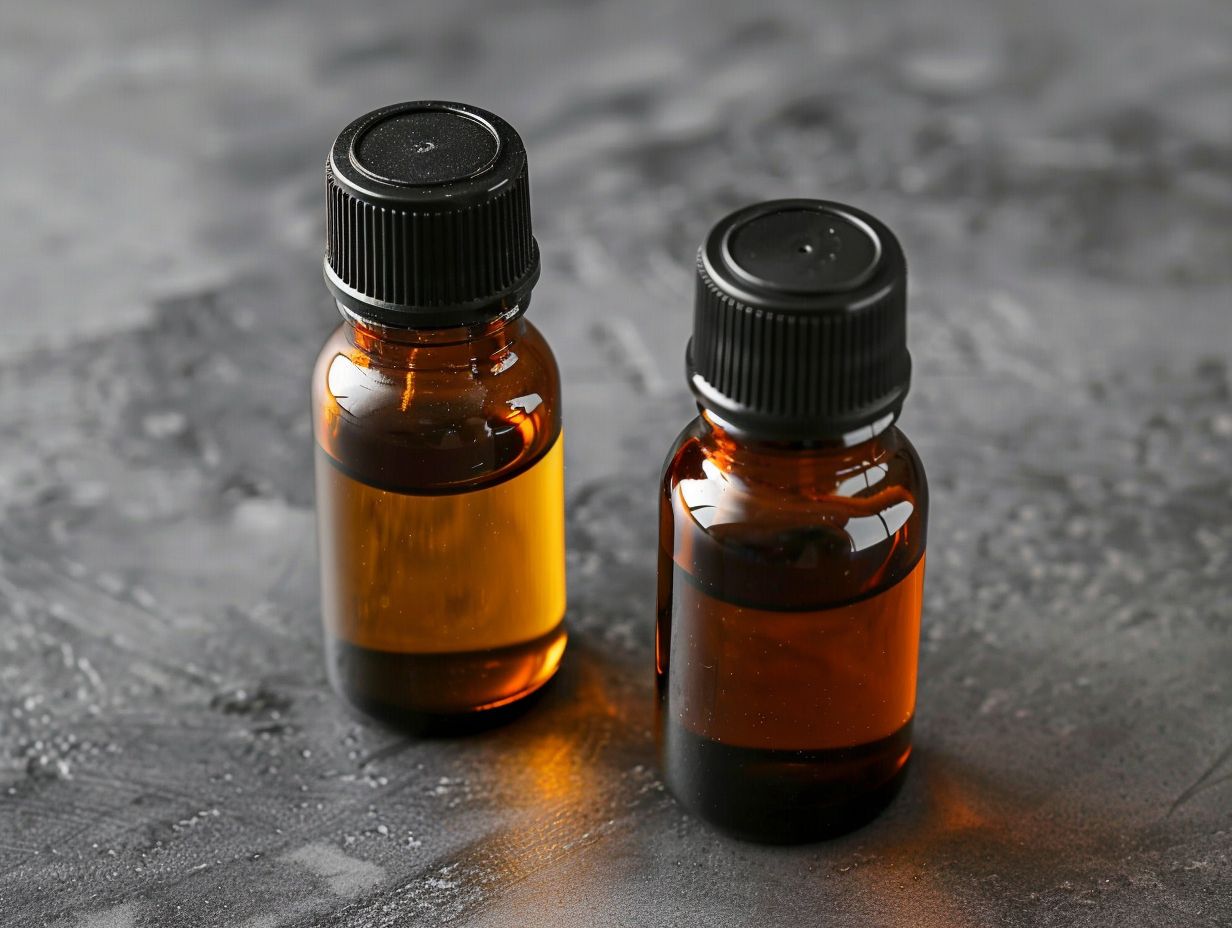
Studies have shown that inhaling certain essential oils can directly impact the brain’s emotional center, leading to decreased feelings of stress and boosting overall well-being. The aroma from essential oils triggers the olfactory system, sending signals to the brain that can help regulate emotions and reduce anxiety levels.
Lavender oil is widely recognized for its calming effects, ideal for winding down after a stressful day or promoting a restful night’s sleep. Chamomile oil is another popular choice known for its ability to alleviate feelings of tension and promote relaxation.
Skin Care
Essential oils play a vital role in skincare, offering solutions for various skin conditions and enhancing overall skin health. They can be used in body oils and combined with carrier oils to address specific skin concerns.
The beauty of essential oils lies in their natural properties that can help soothe, hydrate, and rejuvenate the skin. For instance, lavender oil is renowned for its calming effects and can aid in reducing inflammation and redness. On the other hand, tea tree oil possesses antibacterial properties, making it effective in combating acne and other blemishes. It is crucial to remember that essential oils are highly concentrated and should always be diluted with carrier oils before applying them to the skin to prevent any irritation or adverse reactions.
Why Are Some Essential Oils Cheap?
Some essential oils are available at lower prices due to the use of synthetic additives, dilution with carrier oils, or the presence of lower-quality ingredients, resulting in cheaper but less effective products.
When essential oils are synthesized artificially, they can be produced at a lower cost compared to extracted oils, making them more budget-friendly. The use of carrier oils to dilute the concentration of the essential oil also stretches the product, reducing the overall price. Lower-quality ingredients or improper processing methods can lead to cheaper versions of essential oils that may not have the same therapeutic benefits as higher-quality ones. Price is often a key indicator of the quality and purity of essential oils, with genuine, pure oils typically commanding higher prices due to rigorous production standards and sourcing methods.
Synthetic Oils
Synthetic oils are artificial imitations of natural essential oils, often containing chemicals that may trigger adverse reactions in individuals sensitive to synthetic fragrances or additives.
These man-made oils are widely used in various products ranging from personal care items to cleaning agents, and are favored for their consistency and cost-effectiveness. While synthetic oils can offer similar scents and properties as natural oils, consumers should be cautious of potential health risks. Ingredients such as phthalates, parabens, and artificial colors are commonly found in synthetic oils, which have been linked to skin irritations, allergic reactions, and even hormone disruption.
It is crucial for consumers to educate themselves on how to identify synthetic ingredients on labels, as they often go by names that may not immediately indicate their artificial nature. Being mindful of these synthetic additives can help individuals make informed choices to protect their health and well-being.
Diluted Oils
Diluted essential oils are formulations where the pure oil is mixed with carrier oils to reduce potency. While dilution aids in safe application, improper dilution ratios can lead to skin irritation or allergic reactions.
It is crucial to adhere to proper dilution techniques to ensure the safety and efficacy of using essential oils on the skin. To dilute essential oils correctly, a general guideline is to use a dilution ratio of 2-3% for adults and even lower for children or individuals with sensitive skin. This usually translates to about 12 drops of essential oil per ounce of carrier oil. Are essential oils cheap?
Understanding the different carrier oils’ properties is paramount in achieving the desired effects and minimizing any adverse reactions. Some carrier oils have natural SPF properties, while others are more nourishing or suitable for specific skin types. Knowing which carrier oil to use can enhance the potency and benefits of the essential oils.
Poor Quality Oils
Poor quality essential oils may lack the therapeutic benefits associated with high-quality oils and can lead to skin irritations or adverse reactions due to the presence of impurities or contaminants.
When essential oils are of subpar quality, they may contain synthetic additives or diluted concentrations, rendering them ineffective for their intended purposes. Such oils could exacerbate existing skin conditions or trigger allergies, leading to discomfort or even more severe reactions. The risk of experiencing adverse effects significantly increases when using poor-quality oils, as they lack the purity and potency that characterize their higher-quality counterparts. It is crucial to consider the sourcing, production methods, and purity standards when selecting essential oils to ensure safety and efficacy.
What Are The Risks Of Using Cheap Essential Oils?
Using cheap essential oils can pose risks such as skin irritation, allergic reactions, and ineffective results due to the lower quality and potential presence of impurities in these products.
When opting for inexpensive essential oils, one may unknowingly expose their skin to harsh synthetic fragrances or chemical fillers that can lead to redness, itching, or other forms of skin irritation. These reactions can be particularly pronounced for individuals with sensitive skin or allergies. Lower-quality oils may lack the proper therapeutic properties found in high-quality versions, thus diminishing their effectiveness in aromatherapy or skincare routines.
Skin Irritation
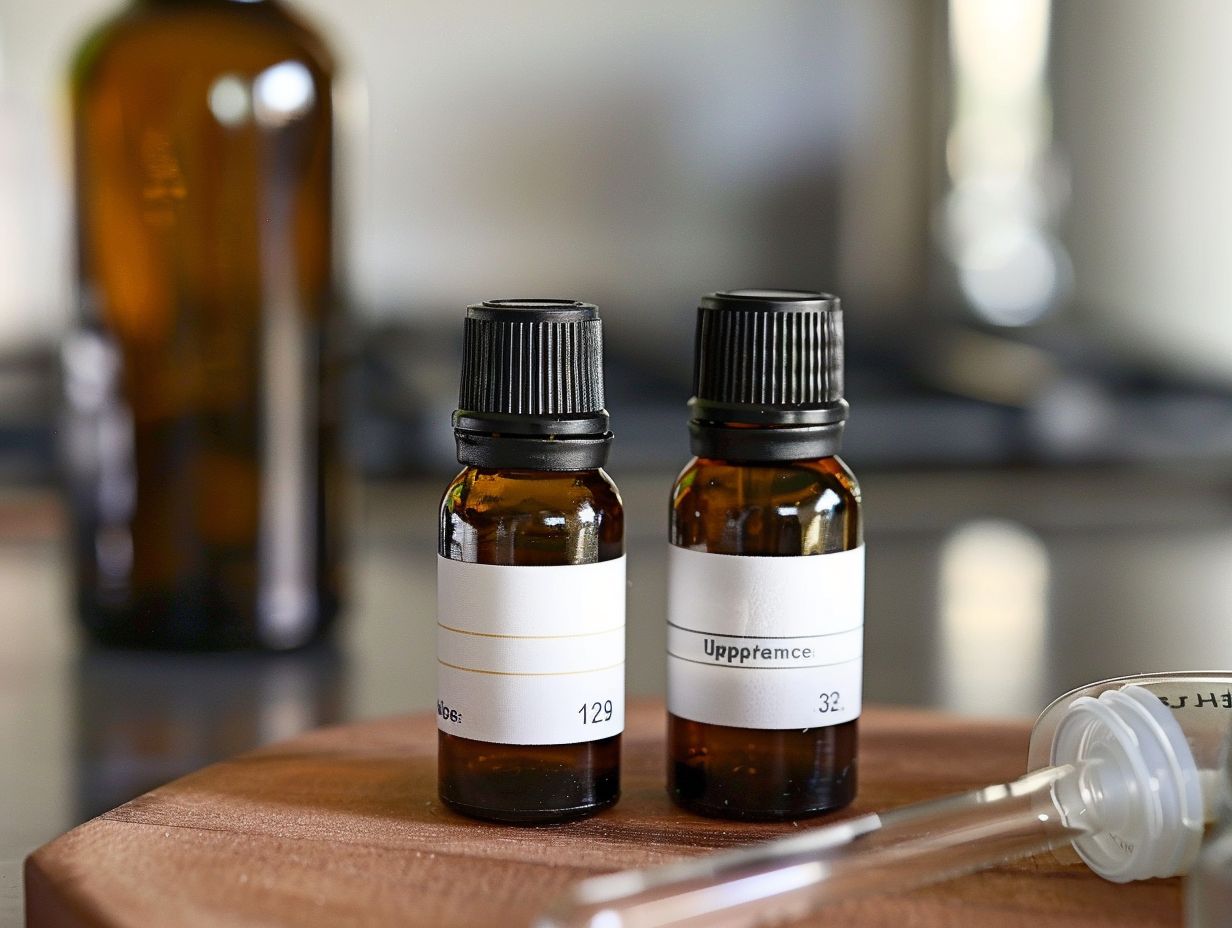
Common symptoms of skin irritation from essential oils may include a burning sensation, blistering, or even peeling of the skin. It is essential to note that allergic reactions to certain essential oils can vary from mild redness to severe swelling and difficulty breathing.
To prevent adverse reactions, patch testing is crucial before using any new essential oils for air quality. This involves applying a small amount of diluted oil to a small patch of skin and monitoring for any negative reactions over 24-48 hours.
Allergic reactions can be triggered by components like limonene, linalool, or citronellol found in essential oils, highlighting the importance of knowing the composition of the oil you are using.
Allergic Reactions
Allergic reactions to essential oils can range from mild skin reactions to severe responses such as hives or respiratory distress, highlighting the importance of identifying allergens and avoiding triggers.
These reactions occur due to the complex nature of essential oils, containing numerous chemical components that can trigger sensitivities in susceptible individuals. Health implications of such reactions vary from person to person, affecting skin conditions like eczema or dermatitis, and in some cases, leading to more serious issues like anaphylaxis.
Managing allergens involves thorough ingredient checks, patch testing, and consulting a healthcare professional if experiencing symptoms. Learn more about essential oils harmful.
Opting for essential oils that are pure, organic, and devoid of synthetic additives can reduce the likelihood of triggering allergic responses.
Ineffective Results
Using low-quality or improperly formulated essential oils can lead to ineffective results in terms of therapeutic benefits or desired outcomes, emphasizing the importance of selecting high-quality oils for optimal efficacy.
When essential oils are of substandard quality, they may lack the necessary therapeutic properties and active compounds that are essential for providing the intended benefits. As a result, users might not experience the expected relief from common ailments or skin issues. Furthermore, low-quality oils can trigger adverse reactions such as skin irritation, redness, or even allergic responses due to impurities or improper processing methods. It is crucial to prioritize quality assurance in the selection of essential oils to ensure their purity, potency, and safety for achieving desired wellness outcomes.
How To Choose High-Quality Essential Oils?
Selecting high-quality essential oils requires attention to purity, proper labeling, and the reputation of the company producing the oils.
When considering essential oils, purity certifications play a crucial role. Look for oils that are labeled as ‘100% pure’ or ‘certified organic’, as this indicates a higher level of quality and authenticity. Pay close attention to the labeling of the products, ensuring that they contain clear information on the botanical name, country of origin, and extraction method. To further ensure quality, it is recommended to research the company’s reputation, including their sourcing practices, production methods, and customer reviews.
Look For Purity Certifications
Purity certifications for essential oils guarantee that the products meet specific quality standards and are free from contaminants or adulterants, ensuring consumers receive authentic and potent oils for their intended purposes.
These certifications play a crucial role in establishing the therapeutic grade standards of essential oils, indicating their purity and efficacy. Companies that adhere to these standards often prioritize quality control measures throughout the production process, from sourcing raw materials to packaging the final product. This commitment to excellence not only ensures customer satisfaction but also promotes transparency and trust in the industry. Renowned brands often invest in rigorous quality testing and transparent labeling practices to maintain their reputation for delivering genuine and high-quality essential oils.
Check For Proper Labeling
Proper labeling of essential oils is essential for consumers to identify the botanical source, purity level, and recommended uses of the product, enabling informed decisions and ensuring safe and effective application.
When examining the label of an essential oil, consumers should focus on key aspects such as the Latin name of the plant, extraction method, country of origin, batch number, and the presence of any additives or dilution agents. A clear and detailed list of ingredients along with safety warnings and storage instructions are crucial elements to consider. Transparent labeling not only aids in understanding the quality and authenticity of the product but also assists in verifying its compliance with safety standards and regulations. Therefore, a well-labeled essential oil can serve as a reliable guide for users seeking to harness the full benefits of aromatherapy and natural remedies.
Research The Brand And Company
Conducting thorough research on the brand and company behind essential oils is crucial in assessing quality, pricing transparency, and brand reputation, enabling consumers to make informed choices that align with their preferences and values.
When exploring essential oil brands, it is important to look into their sourcing practices to ensure the purity and potency of the oils. Established brands often have a history of providing high-quality products and have built a solid reputation over time.
- Reading customer reviews and testimonials can offer valuable insights into the experiences of other users and the effectiveness of the oils.
Examining the production process of the oils, such as whether they are steam distilled or cold-pressed, can give you an indication of the oil’s quality and therapeutic benefits. Transparency in pricing is also key; trustworthy companies provide detailed information on pricing structures and any additional costs, allowing consumers to understand the value they are getting for their money.
Looking deeper into the company’s ethos, values, and commitment to sustainability can also influence your decision-making process. A well-established brand with a strong commitment to ethical practices and environmental responsibility can give you peace of mind knowing that your purchase supports safe essential oils sourcing and production methods.
Frequently Asked Questions
What are cheap essential oils?
Cheap essential oils are those that are sold at a significantly lower price compared to other essential oils. They may be made from synthetic ingredients or have a lower concentration of the desired plant extract.
Are cheap essential oils bad for you?
While not all cheap essential oils are bad, some of them may be harmful to your health. It’s important to research the quality and source of the oils before purchasing and using them.
Why are some essential oils cheaper than others?
The cost of essential oils can vary depending on factors such as the type of plant, the extraction method used, and the brand. Cheaper essential oils may be made from less expensive plants or use less effective extraction methods.
Can cheap essential oils still be effective?
Cheap essential oils may still have some benefits, but they may not be as effective as higher quality oils. This is because they may have a lower concentration of the desired plant extract or contain synthetic ingredients that do not have the same therapeutic properties.
What are the potential risks of using cheap essential oils?
Using cheap essential oils may pose risks such as skin irritation, allergic reactions, or even adverse effects on your health if they are made with low-quality or synthetic ingredients. It’s important to use caution when using these oils.
How can I ensure the quality of my essential oils?
To ensure the quality of your essential oils, it’s important to research the brand and source of the oils. Look for reputable brands that use high-quality plants and extraction methods. It’s also helpful to look for oils that have been third-party tested for purity and potency.

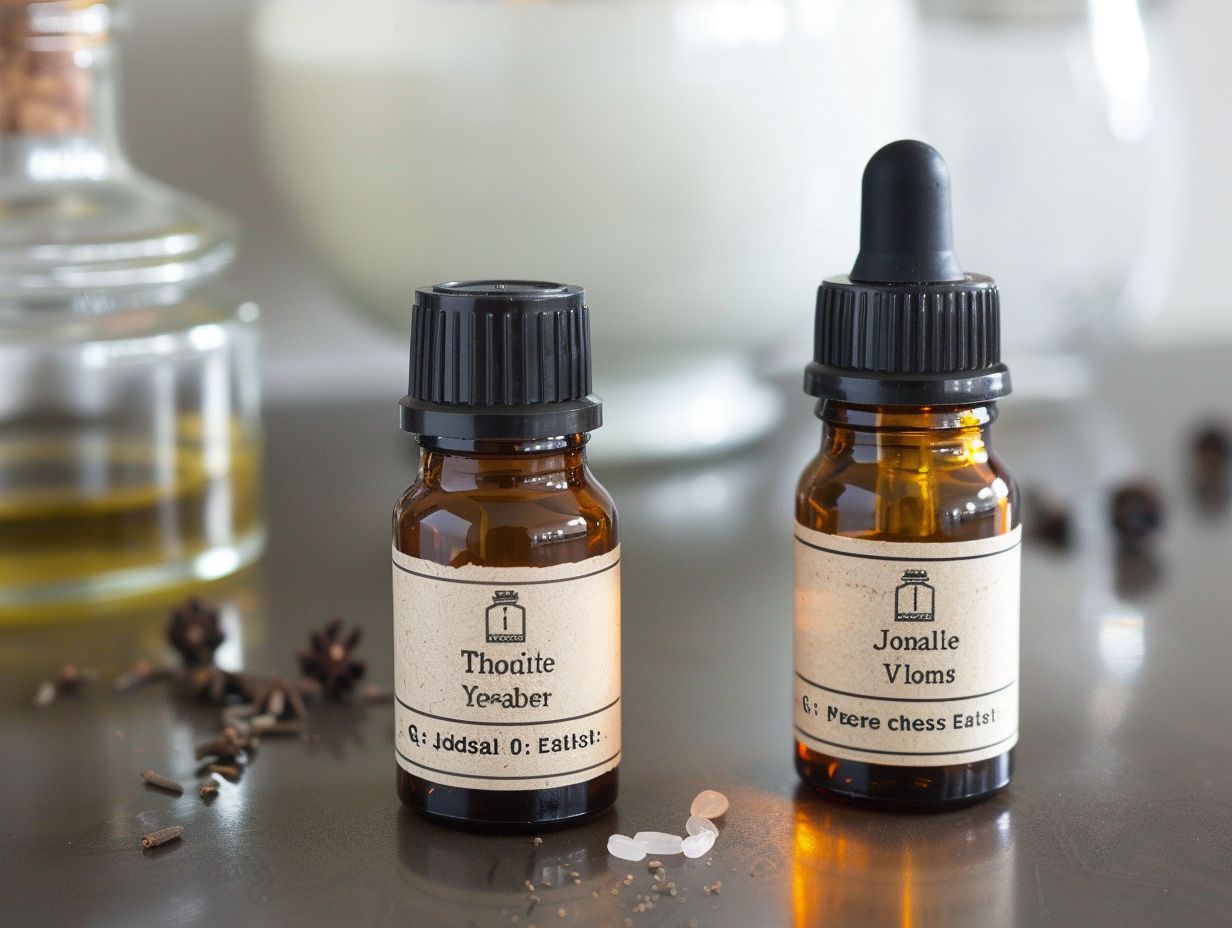
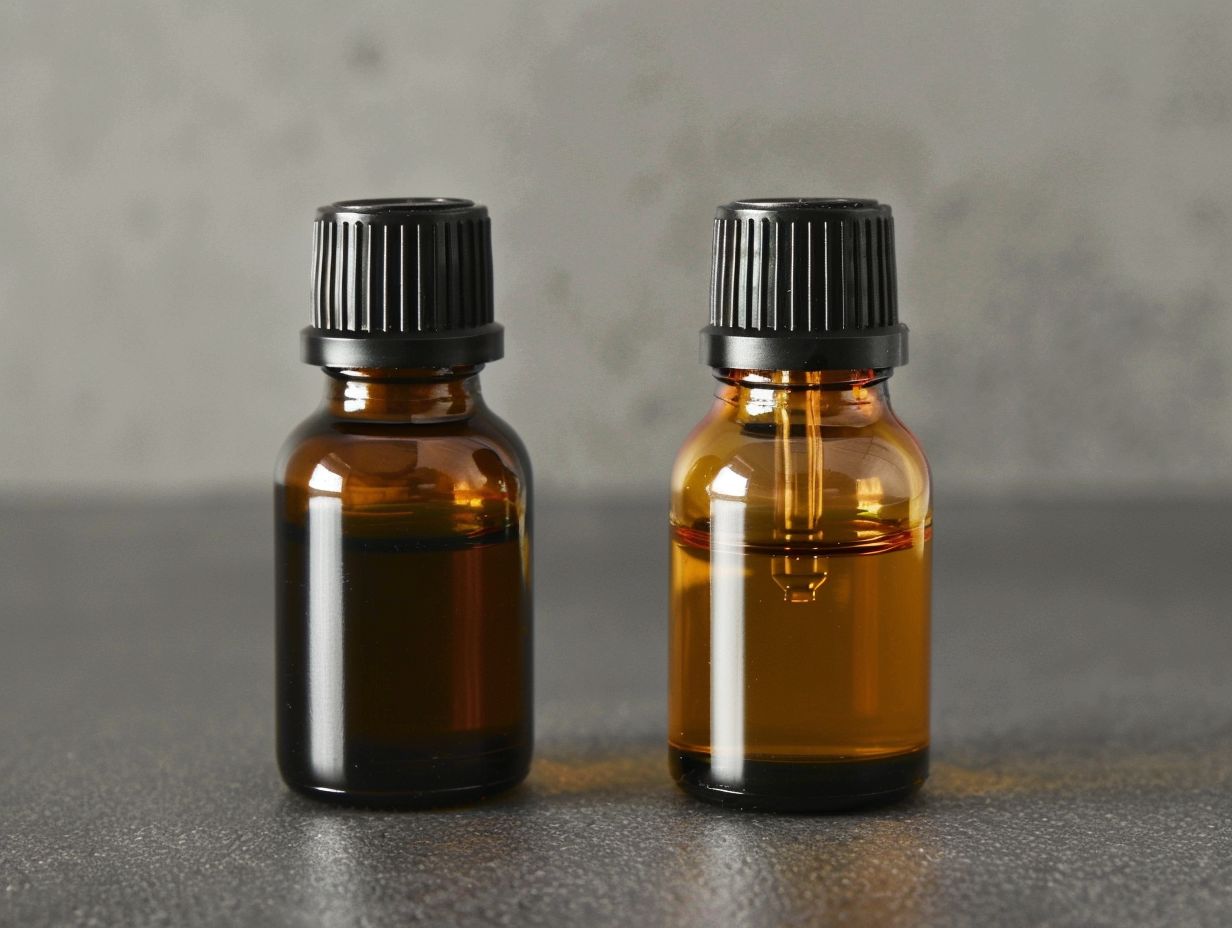
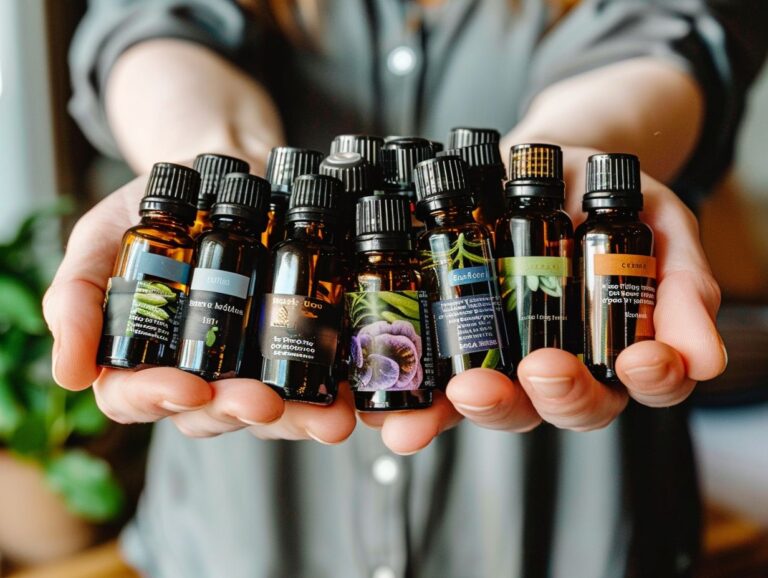

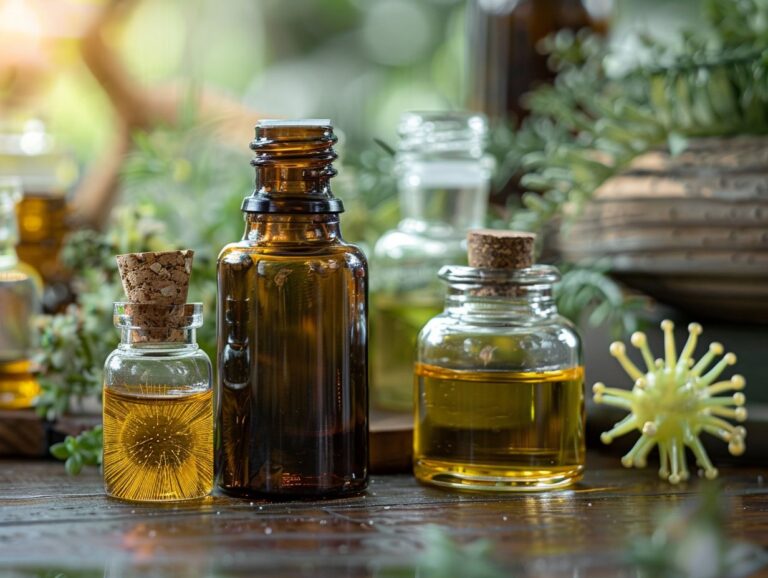
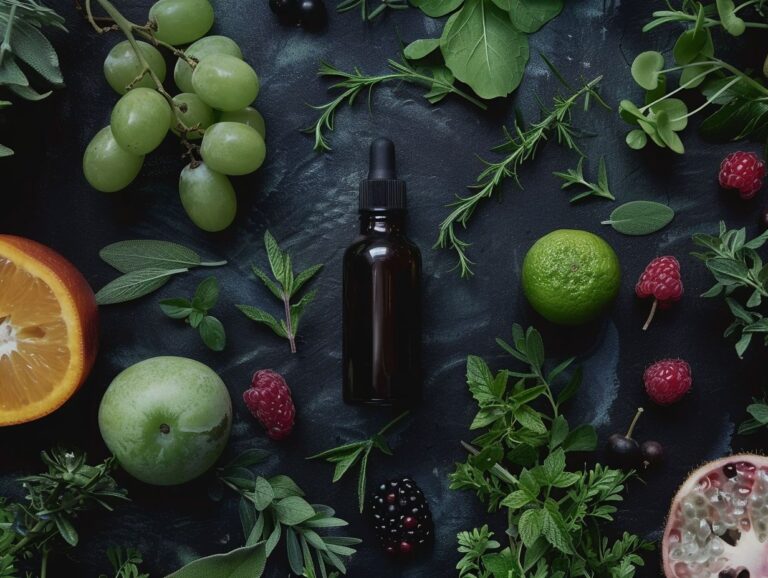
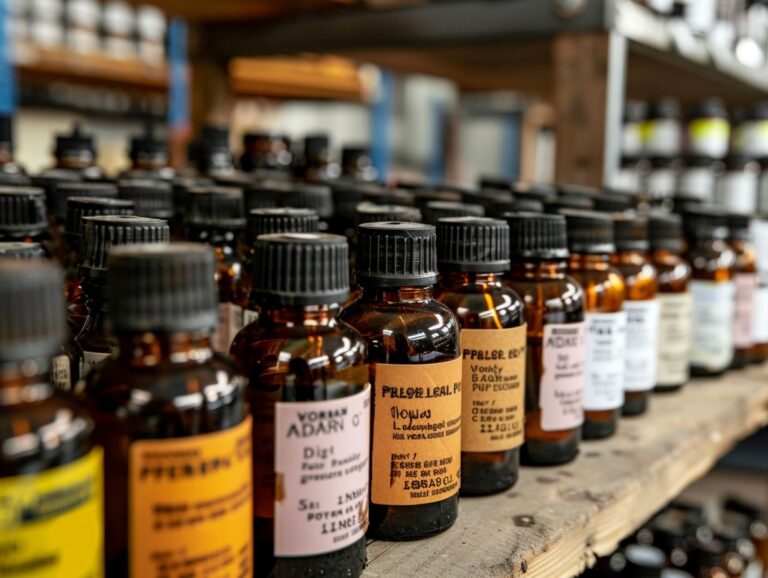
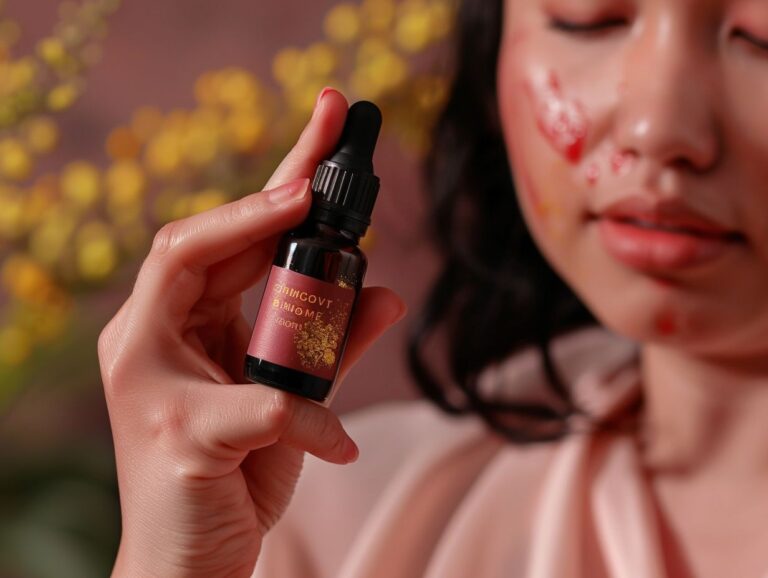
11 Comments